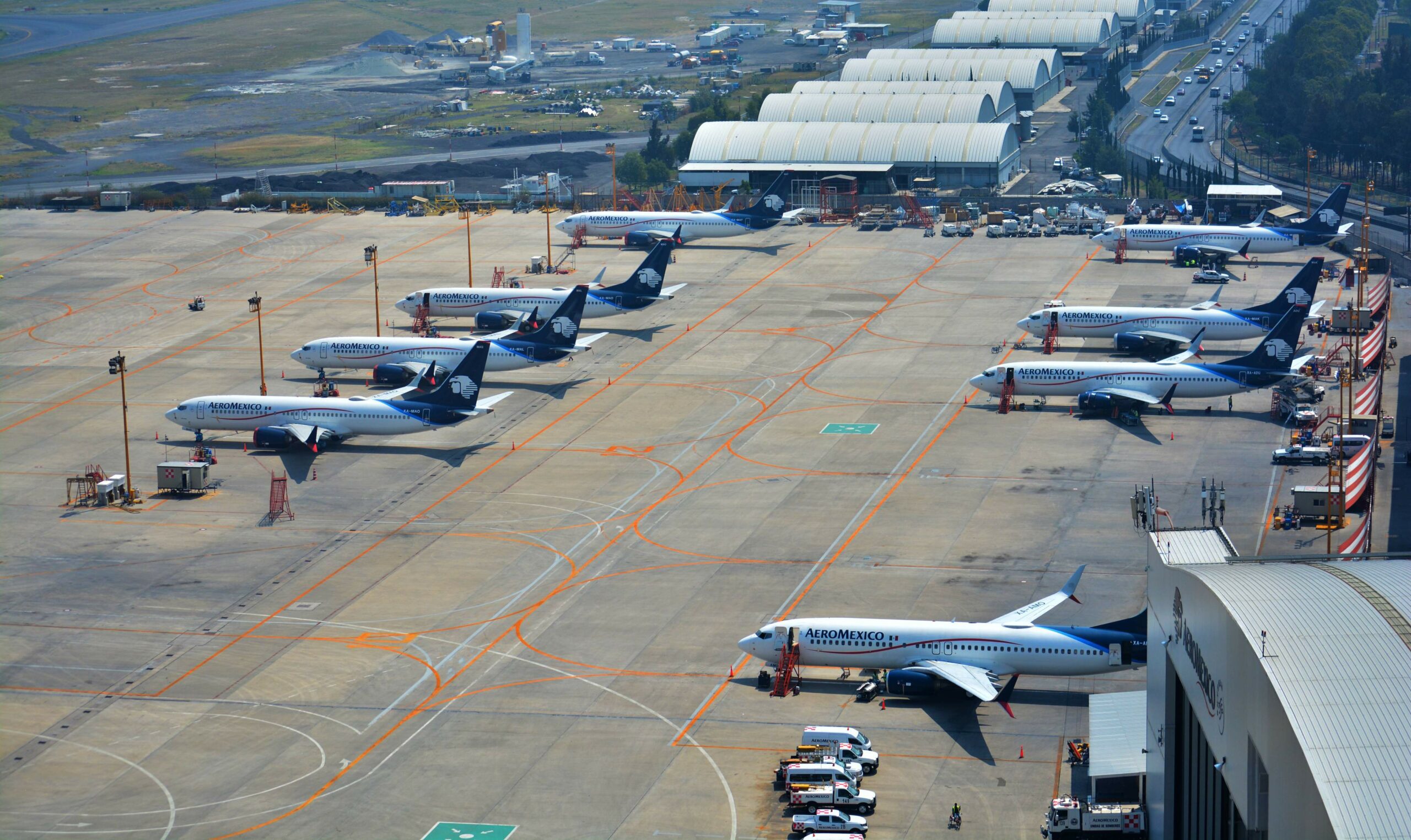
Aeromexico MAX scaled
U.S. regulators have blocked 13 existing and planned routes for Aeroméxico, Volaris, and VivaAerobus, effectively slamming the door on their expansion plans from the Valley of Mexico. In a sharp escalation of a bilateral dispute, the U.S. Department of Transportation (DOT) also unveiled a proposal to ban Mexican carriers from flying cargo in their passenger jets from Mexico’s main airport.
The moves are a direct response to what the DOT calls “flagrant violations” of the U.S.-Mexico Air Transport Agreement. The agency alleges the Government of Mexico (GoM) has unfairly harmed U.S. carriers through two key actions: a 2023 ban on dedicated cargo flights at Benito Juárez International Airport (AICM) and “arbitrary” reductions of flight slots at the same airport.
Growth Freeze: The Canceled Routes
The DOT’s final order (2025-10-13) makes for grim reading for the carriers, halting significant growth plans. Effective immediately, 11 new proposed services are disapproved.
This includes:
- Volaris: A planned route from AICM to Newark (EWR).
- Aeroméxico: A planned route from AICM to San Juan (SJU).
- Viva Aerobus: A nine-route expansion from Felipe Ángeles International (NLU) to Austin (AUS), New York (JFK), Chicago (ORD), Dallas/Ft. Worth (DFW), Denver (DEN), Houston (IAH), Los Angeles (LAX), Miami (MIA), and Orlando (MCO).
Furthermore, the order demands Aeroméxico cease two existing routes from NLU (to Houston-IAH and McAllen-MFE) by November 7, 2025.
Most critically, the DOT enacted a blanket ban on any future frequency increases or new routes from either AICM or NLU by these airlines, indefinitely freezing their U.S. operations from the capital.
The “108-Day” Retaliation
In a separate but related proposal (Order 2025-10-14), the DOT outlined a plan to prohibit Mexican carriers from transporting “belly cargo” (freight in the holds of passenger flights) between AICM and the United States.
In a move of pointed political theater, the DOT proposed a 108-business-day transition period for this ban. This is the exact amount of time the Mexican government gave U.S. all-cargo carriers to vacate AICM back in 2023.
The Core of the Dispute: Cargo and Slots
This sweeping U.S. action is rooted in two core grievances.
- The Cargo Decree: In February 2023, the GoM evicted all-cargo operators from AICM, forcing U.S. freighters to relocate to the more distant NLU. However, the decree explicitly exempted belly cargo on passenger flights, which the DOT argues created an anti-competitive “carve-out” for Mexican carriers, violating the U.S. right to a “fair and equal opportunity to compete.”
- The Slot Reductions: The DOT also cites the “arbitrary” confiscation of historic slots from U.S. carriers at AICM. The GoM mandated capacity cuts, first from 61 to 52 operations per hour, and then again to 43. The DOT order claims it never received a clear technical justification for this and alleges it was a “State-directed market intervention” designed to artificially bolster the “struggling” NLU airport by forcing traffic its way.
The DOT stated that while U.S. carrier operations were “frozen” by these cuts, “certain Mexican air carriers… have been able to add a significant number of new U.S. services… by repurposing slots.”
After dismissing recent diplomatic engagements as insufficient, the DOT has made it clear that the freeze on Mexican carrier growth will remain in place until the GoM “return[s] to full compliance” with the agreement.
Views: 781
About The Author
Take AirInsight for a Test Flight
7 days full access — premium analysis and the complete data model library — for $1. No commitment.
Start My Test Flight → {
"@context": "https://schema.org",
"@type": "WebPage",
"name": "AirInsight in the Media",
"description": "A curated list of media citations where AirInsight insights are used."
}
{
"@context": "https://schema.org",
"@type": "WebPage",
"name": "AirInsight in the Media",
"description": "A curated list of media citations where AirInsight insights are used."
}


